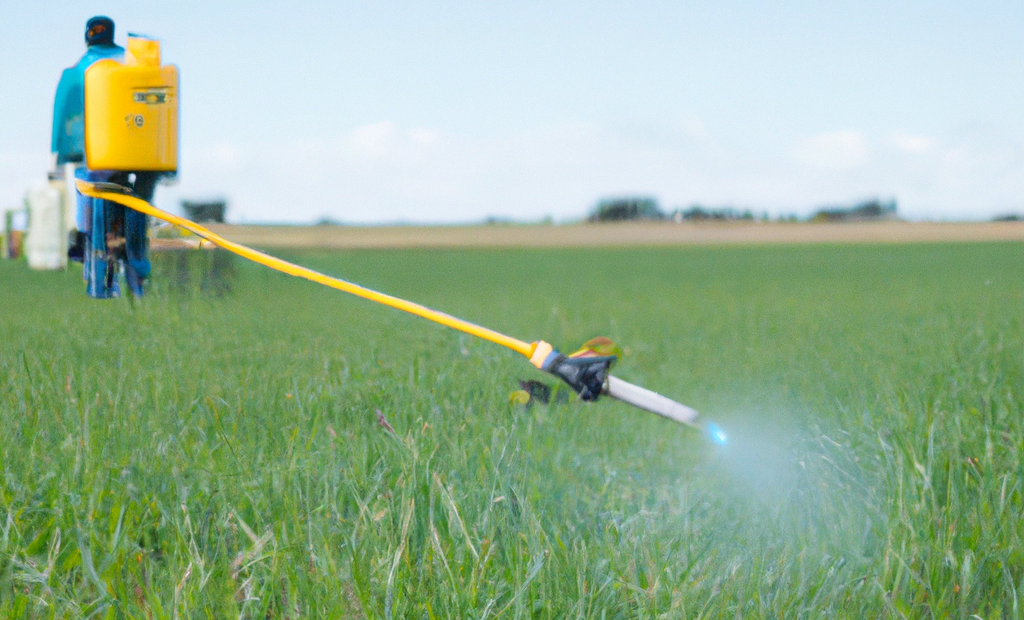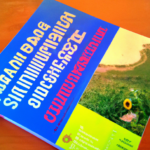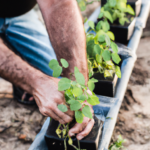The article discusses the damage caused by the excessive use of pesticides and fertilizers in agriculture, including water and soil pollution and the threat to biodiversity. It proposes organic farming and the use of biofertilizers and environmentally friendly agricultural products as sustainable solutions. It highlights that biofertilizers, made from organic materials, are beneficial to soils and plants without harming insect life, contributing to an ecological balance. Finally, it urges to rethink pest and nutrient management strategies in agriculture to minimize their impact on biodiversity.
In the current era of intensive agriculture, the use of pesticides and fertilizers has become widespread to increase crop productivity. However, their impact on biodiversity, particularly on non-target insects, has raised growing concerns. This article analyses the effects of pesticides on the lives of these often forgotten but vital insects for the health of our ecosystems. The impact of pesticides and fertilizers in organic farming will be explored, and the effects of biofertilizers and pesticides on non-target insects will be compared. In addition, we will examine the consequences of agricultural products on biodiversity and how sustainable agriculture, through the use of biofertilizers, can help reduce harm to these insects. This analysis is essential to understand how we can balance the demands of high agricultural production with the need to preserve the diversity of life on Earth.
- 1. "The impact of pesticides and fertilizers on organic farming"
- 2. "Biofertilizers vs Pesticides: Effects on non-target insects"
- 3. "Agricultural products: Consequences of pesticides on biodiversity"
- 4. "Sustainable agriculture: Reducing damage to non-target insects through biofertilizers"
1. "The impact of pesticides and fertilizers on organic farming"
The use of pesticides and fertilizers in agriculture has been a common practice to combat pests and improve crop productivity. However, their indiscriminate use can have a negative impact on organic farming, a production system that is based on the use of natural and sustainable methods. Pesticides can affect non-target insects, altering the natural balance and harming biodiversity. In addition, residues of these chemicals can contaminate water and soil. Furthermore, fertilizers, although essential for plant growth, can cause eutrophication of water bodies if used in excess. Therefore, organic farming promotes the use of biofertilizers and agricultural products that are environmentally friendly, thus reducing the negative impact of conventional pesticides and fertilizers.
2. "Biofertilizers vs Pesticides: Effects on non-target insects"
Organic farming, which favors the use of biofertilizers and non-toxic agricultural products, has become an increasingly popular alternative to minimize the negative impact of pesticides on non-target insects. Traditional fertilizers and pesticides contain chemicals that, while effective in controlling specific pests, can also adversely affect other beneficial insects, upsetting the ecological balance. Biofertilizers, on the other hand, offer a safer and more environmentally friendly solution. Made from organic materials and beneficial microorganisms, these agricultural products nourish the soil and plants without harming non-target insects, promoting a more sustainable and balanced agriculture.
3. "Agricultural products: Consequences of pesticides on biodiversity"
The use of pesticides in agricultural products has serious consequences on biodiversity, affecting both target and non-target species. The impact of these chemicals goes beyond the elimination of pests, to altering ecosystems and reducing biological diversity. Fertilizers, which are often used in conjunction with pesticides, can exacerbate these effects by altering soil nutrients and promoting the growth of certain species over others. In this context, organic farming is presented as a sustainable and environmentally friendly alternative. The use of biofertilizers, for example, can help maintain soil health and promote biological diversity, while controlling pests in a more natural and less harmful way. Thus, it is urgent to rethink pest and nutrient management strategies in agricultural products, to minimize their impact on biodiversity and promote a more sustainable future.
4. "Sustainable agriculture: Reducing damage to non-target insects through biofertilizers"
Sustainable agriculture is presented as a viable solution to reduce the damage caused to non-target insects by the use of pesticides. The application of biofertilizers, natural products that enrich the soil and promote plant growth, can be a safer and more environmentally friendly alternative. Biofertilizers, as part of organic farming, are not only beneficial for plants and soil, but also for insects and other organisms that play a vital role in agricultural ecosystems. By using more environmentally friendly agricultural products, such as biofertilizers, the exposure of non-target insects to harmful chemicals can be minimized, thus contributing to biodiversity and the health of our planet.
After a detailed analysis of the effects of pesticides on non-target insects, it is clear that the use of these products in agriculture can have significant implications for biodiversity and ecology. Pesticides, although effective in eliminating pests, also affect beneficial insects and contribute to the decline of non-target insect species. In contrast, organic farming, which promotes the use of biofertilizers, appears to have a significantly lower impact on insect biodiversity. Biofertilizers noticeably reduce harm to non-target insects, thus improving ecosystem health and promoting agricultural sustainability. It is therefore essential that farmers and decision-makers shift towards more sustainable and eco-friendly agricultural practices, prioritizing the use of biofertilizers over traditional pesticides. This will not only protect non-target insects and maintain biodiversity, but will also contribute to healthier and more sustainable agriculture.


